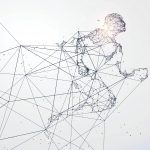The second iteration of Horizon ‘From Human Data to Personal Experience’ investigated three closely linked research challenges: the technology challenge was concerned with establishing the underpinning technologies for capturing, interpreting and using human data; the experience challenge, was concerned with harnessing these to deliver new kinds of personal experience; and the societal challenge, was concerned with doing this in an appropriate and ethical way.
The technology challenge:
The Digital Economy draws upon a broad palette of technologies. These increasingly include technologies for capturing and analysing data that fall under the broad umbrella of ‘Big Data’. With the emergence of the Internet of Things and new sensing modalities, from biosensors, to wearable cameras, to sensors embedded in everyday artefacts, we anticipate a further dramatic increase in the volume, diversity and richness of available data that describes human activity. This human data has a number of distinctive features:
data that describes human activity. This human data has a number of distinctive features:
It is small data. Although there may a great deal of data, it takes the form of a collection of small datasets about a large number of distinct things (people), raising challenges about how it is captured, stored and processed.
It is highly complex data that is closely bound up with people and their activities and so is inherently complex, difficult to interpret, multi-layered and ambiguous – as are we all.
It is intimate data that is highly sensitive, including data that individuals may not wish to disclose.
These features requires us to develop a human-centred approach to data focusing on human-centred data collection, richer approaches to interpretation, more transparent analysis and new perspectives on digital identity.
Example projects.
The experience challenge:
In many ways the digital economy is an experience economy with digitally rich user experiences delivering its core value. To accrue the benefit of human data within the digital economy we need to understand it from an experience perspective. Human data can capture users’ experiences, but also has the potential to shape them too. In moving from human data to a personal experience we therefore need techniques to better capture and understand human experiences as well as new approaches to delivering data-driven experiences. Horizon focuses on the following:
 Using human data to understand human experiences. The ability to harvest and interpret human data opens up new avenues for understanding digital economy experiences and how they can fit into everyday life, complementing existing techniques such as ethnography and participatory design. Horizon’s challenge is to establish a framework of techniques that draws upon captured human data and then to embed them into partners’ design practices.
Using human data to understand human experiences. The ability to harvest and interpret human data opens up new avenues for understanding digital economy experiences and how they can fit into everyday life, complementing existing techniques such as ethnography and participatory design. Horizon’s challenge is to establish a framework of techniques that draws upon captured human data and then to embed them into partners’ design practices.
Building human data into personally meaningful experiences that blend the physical and digital while also integrating traditional products, media and services. We are extending Horizon’s work on designing experiences with human data, broadening its scope to consider lifelong experiences as well as the ‘trajectories of things’ that pass among different owners, gathering and sharing human data as they go.
Empowering people to craft their own human data experiences by moving beyond current approaches to personalisation that underlie today’s recommendations and targeted advertising. We explore how people can co-create experiences with commercial providers through processes of crafting – where they add their own layers of meaning – to ‘official’ experiences and gifting where they tailor experiences for others.
Example projects.
The societal challenge:
Horizon promotes an ‘ethical by design’ approach to handle human data that encompasses:
The fair and transparent use of human data: this is becoming increasingly critical for the societal acceptance of digital economy experiences. It is especially important for companies whose brand is inherently associated with trust. We work closely with partners to articulate the ethical issues involved, shaping policy and strategy, both governmental but also within partner companies, while also embedding ethical principles into the enabling technologies themselves.

Ensuring privacy in handling human data. Privacy is a major public concern around the continued expansion of digital economy technologies. It is also a complex and multi-faceted issue with policy initiatives championing user rights and privacy protection. We work closely with our partners to engage in policy debates and to develop technical mechanisms and approaches that instantiate these policies.
Establishing appropriate rights of ownership and use for human data. The ability of the digital to allow easy copying and reuse has already led to the rise of a ‘remix’ culture that challenges established notions of copyright – a situation that is now extending into the physical realm through the advent of 3D printing and other rapid fabrication technologies. The highly personal nature of human data amplifies uncertainties of ownership and hence the right and ability to derive fair value from human data.
Horizon has been exploring this challenge through our partnership in the CREATe Centre for Copyright and New Business Models in the Creative Economy, which has involved collaborating with legal experts in copyright law. We aim to translate the principles learned into mechanisms for capturing and sharing value among those involved in creating, distributing and using human data within future experiences.
Example projects.
















